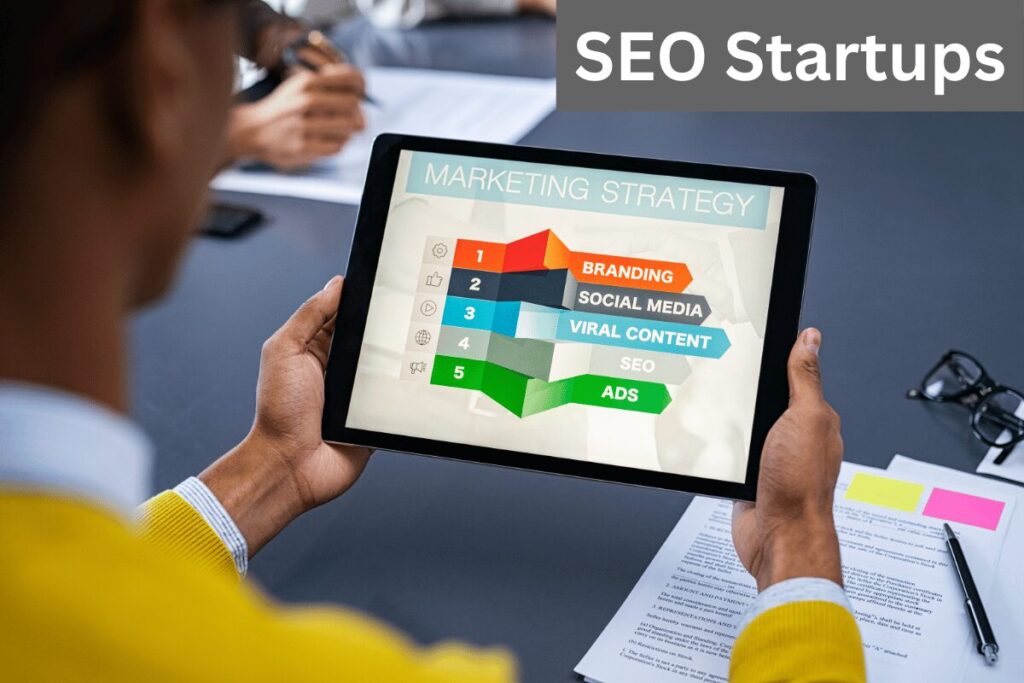
Ultimate Guide to SEO for Startups: Boost Your Online Visibility
BlogHey Startup Warriors, Let’s Talk SEO (Without the Boring Stuff) We’ve all been there: staring at a blank screen, wondering why our “revolutionary” startup website isn’t magically ranking on Google. Spoiler: it’s not because the algorithm hates you. It’s because SEO for startups is like assembling IKEA furniture without the instructions—doable, but you’ll probably end up with extra screws and a wobbly shelf. Let’s fix that. At Sitelinx Organic SEO Agency in Los Angeles, we’ve helped dozens of startups turn their SEO chaos into clarity. Whether you’re wrestling with Local SEO, sweating over WordPress SEO services, or just need a marketing consultant to yell “STOP” before you keyword-stuff your homepage, we’ve got your back. Why Startups Need SEO More Than Coffee (And That’s Saying Something) Let’s get real: if your startup isn’t prioritizing SEO, you’re basically handing customers to competitors. SEO services aren’t just for big corporations with bottomless budgets. In fact, startups have the agility to outmaneuver slow-moving giants—if they play the game right. Here’s the kicker: 88% of consumers research online before buying. If your site’s buried on page 3 of Google, you’re invisible. But hey, at least your mom thinks your website looks nice. Local SEO: Your Secret Weapon for Community Domination Local SEO isn’t just for pizza shops and dog groomers. Startups targeting specific regions (or even neighborhoods) can crush it by optimizing for Google Business reviews, local keywords, and directory listings. Imagine ranking above that established competitor down the street. Feels good, right? Pro Tip: Claim your Google My Business profile yesterday. Fill it with photos, respond to reviews (yes, even the salty ones), and sprinkle in local keywords like “best coffee tech startup in LA.” Choosing an SEO Partner: Why “Cheap” Usually Means “Useless” Raise your hand if you’ve Googled “best SEO company for small business” and felt instantly overwhelmed. Same. The truth? Not all SEO agencies are created equal. Some promise overnight results (🚩), while others drown you in jargon (🚩🚩). Here’s what to look for: Transparency: If they won’t explain their strategy, run. Custom plans: Your startup isn’t a cookie-cutter business. Technical SEO services: Because someone needs to fix that 404 error graveyard. Shameless plug: At Sitelinx, we’re like the Swiss Army knife of SEO services—whether you need website management, content strategy, or a WordPress SEO specialist to speed up your site. (Slow load times? Yeah, Google penalizes that. Let’s chat.) WordPress + SEO = Startup Bliss (No Coding Required) If your site runs on WordPress, congrats—you’re already ahead. But here’s the tea: WordPress SEO services aren’t just about slapping Yoast on your site and calling it a day. You need: Optimized themes (no, that free one isn’t “good enough”) Clean permalinks (none of that “?p=123” nonsense) Regular updates (ignore these, and hackers will RSVP to your site) WordPress vs. DIY Platforms: A Table That Says It All Feature WordPress DIY Platforms (Wix, Squarespace) SEO Flexibility ✅ Full control ❌ Limited plugins Speed Optimization ✅ Customizable ❌ Generic templates Scalability ✅ Grows with you ❌ Restrictive Best for Startups serious about growth Hobbyists WordPress isn’t perfect (looking at you, update notifications), but for startups aiming to scale, it’s a no-brainer. Technical SEO: The Boring Stuff That Makes You Money Let’s geek out for a sec. Technical SEO services are the backbone of your rankings. Think of it like dental hygiene—ignore it, and things get ugly fast. Here’s what we check at Sitelinx: Mobile responsiveness (Google’s watching) Structured data (help Google “read” your site) XML sitemaps (because guessing isn’t a strategy) Ever clicked a site that took 10 seconds to load? Yeah, nobody sticks around for that. Speed matters, folks. FAQs: Because Googling “SEO Questions” Feels Ironic 1. “How long until SEO works?” Patience, grasshopper. SEO is a marathon, not a sprint. Most startups see traction in 3–6 months. Want faster results? Pair it with paid ads. 2. “What’s the #1 SEO mistake startups make?” Keyword stuffing. Google’s not a 2005 search engine—write for humans first. 3. “How do I pick the best SEO companies for small business?” Look for case studies, clear communication, and actual reviews. (Hint: We’ve got all three at Sitelinx.) Ready to Outrank Your Competitors? Let’s Get Tactical SEO isn’t magic—it’s strategy. Start with: Keyword research: Tools like Ubersuggest or Ahrefs (no, Google Keyword Planner isn’t enough). Content that solves problems: Blog posts, guides, FAQs. Backlinks from reputable sites: Guest posts, partnerships, or HARO. And if this feels overwhelming? That’s why SEO agencies exist. We’re biased, but partnering with a best SEO company like Sitelinx lets you focus on your startup while we handle the algorithm wrestling. Final Thought: SEO Is a Party—Don’t Show Up Late Startups that treat SEO as an afterthought end up playing catch-up for years. Whether you DIY or hire a SEO specialist, start now. And hey, if you’re in LA and want to brainstorm over tacos (or Zoom), hit up Sitelinx Organic SEO Agency. We’ll make your site so Google-friendly, it’ll practically rank itself. 😉 P.S. Still reading? Awesome. Now go fix those meta tags.
